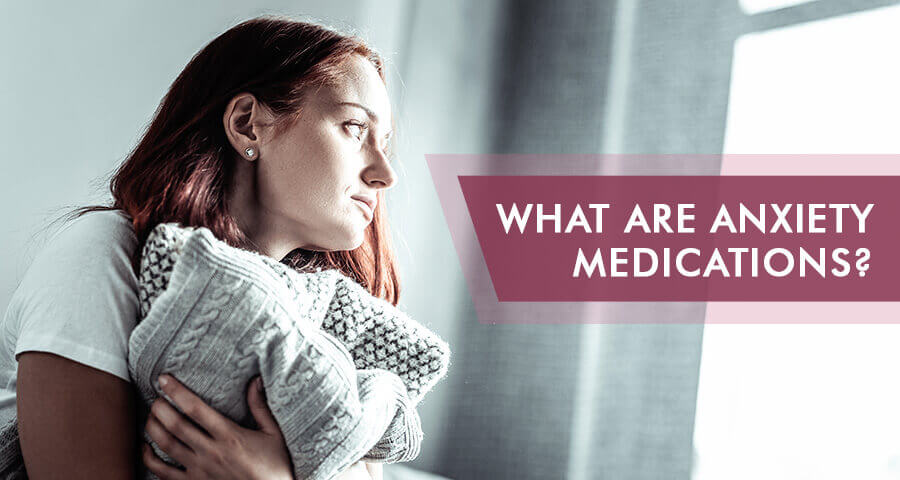
Everyone experiences worry and stress at some point in their life especially during this time of the pandemic. In fact, in 2020, the prevalence rate for anxiety disorders in the United States rose to 32%. For some people, overwhelming fear, heart-pounding panic, and sleepless nights are the things they must deal with daily. On the other hand, for people with disabling anxiety, medications might be the only answer.
Table Of Contents:
Many drugs provide temporary relief from symptoms. Usually, benzodiazepines and SSRI antidepressants are some of the most commonly prescribed pharmaceutical agents to people struggling with panic, depression, and insomnia. But what are the dangers of treating anxiety disorders using these drugs? Is the long-term use of these medicines safe?
Take note that some of the anti-anxiety drugs are potent and have high addiction potential. It is not surprising then that addiction to anti-anxiety meds is a pressing problem in the United States and around the world. Read on to learn more about the dangers of prescription anxiety pill abuse.
More About Anxiety Medications:
What Is Anxiety Disorder?
Anxiety, when experienced occasionally, is normal, common, and most people have the chance to encounter it. To define this, just imagine a student who is about to report on something he or she did not review. This makes the condition different from generalized anxiety disorder (GAD). When anxiousness comes in for no reason and it takes months for the patient to recover from it, this is considered as GAD. According to the National Institute of Mental Health, anxiety disorders like GAD are characterized by chronic anxiousness, exaggerated worry, and tension, even when there is little or nothing to provoke it. Sometimes, it is easy to spot a person with this disorder especially when certain events that can trigger their anxiousness occur. Medical doctors from Michigan report the presence of the signs and symptoms of anxiety disorder may be diverse.
Some of These Include:
- Restlessness
- Being easily fatigued
- Difficulty in concentrating
- Irritable
- Muscle tension
- Sleep disorder
In the same study of Michigan doctors, these symptoms may last for 6 months. They might become severe and these symptoms could lead to poor quality of life. Although many medicines can manage these symptoms, it is highly recommended to seek help from medical professionals to avoid other health complications.
What Are The Drugs For Anxiety?
There is no magic treatment for people who are chronic worriers. Yet, medications are the cornerstone of anxiety treatment for several reasons. Drugs for anxiety provide temporary relief of symptoms and they help the person concentrate on other treatments, such as psychotherapy. Also, anxiety drugs may provide the energy and motivation to exercise. Furthermore, it does not mean that anxious patients have to take the drugs classified as anxiolytics. Other drug classes that can manage symptoms include antidepressants, antihistamines, benzodiazepines, and natural medications.
Antidepressants
Antidepressants can be used to manage anxiety disorders. Based on the study of scientists from Canada, low levels of serotonin can lead to anxiousness. Thus, considering the use of antidepressants can regulate the production of this mood-stabilizer hormone.
Some of the Antidepressant Drug Classes Include the Following:
- Serotonin-Norepinephrine Reuptake Inhibitors (SNRI) – The first line of treatment is usually a selective serotonin reuptake inhibitor. Since serotonin is a chemical that improves mood and induces a feeling of well-being, SSRI antidepressants will work by increasing the amount of serotonin in the brain. The advantage of these drugs for anxiety is that they are not addictive. The disadvantage is that they may take 2-6 weeks to become fully effective and during the first 2 weeks, the side effects like initial jitteriness, are stronger. Some of the SNRI anxiety medication names include Venlafaxine and Duloxetine.
- Selective Serotonin Reuptake Inhibitors (SSRIs) – Based on the recommendations of doctors from New York, for patients who cannot tolerate the side effects of SSRI, the drug class serotonin-norepinephrine reuptake inhibitors can be considered. Aside from this, an SSRI drug can also be considered a social anxiety medication. However, medication switching can only be done under the supervision of a doctor. Some of the SSRI anxiety medication names include Celexa, Lexapro, Paxil, Prozac, and Zoloft.
- Tricyclic Antidepressants (TCAs) – Tricyclic antidepressants are second-generation antidepressants in the treatment of anxiety disorders. Although effective to treat this condition, pharmacologists from the United Kingdom report that the side effects are more frequent and higher compared to SSRIs and SNRIs. There is also an increased risk for suicide which is why the drug classes mentioned should be tried first before the TCAs. Moreover, some of the anxiety medication names for TCA drugs include Imipramine and Clomipramine.
Take note that withdrawal symptoms from these drugs for anxiety may occur if the patients abruptly stop the use of these drugs even if it is because of a medication switch. Thus, patients should always seek medical advice before deciding to stop or change their medication for safety purposes.
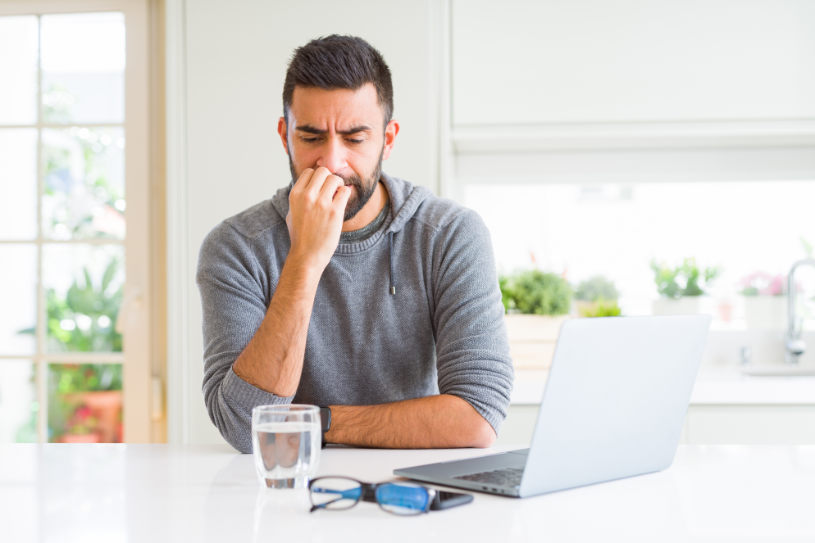
Antihistamines
In a randomized control trial from Germany, it was reported that patients with generalized anxiety disorders may exhibit restlessness and sleep disturbances. Thus, the use of antihistamines like Hydroxyzine and Diphenhydramine can help handle this condition. Also, antihistamine can sometimes be considered as a social anxiety medication. Additionally, antihistamines are generally safe for children and pregnant women and they are comparable to other anxiolytics. However, antihistamine has a major drawback and that is the possibility of having antihistamine tolerance.
To avoid this, patients are urged to strictly comply with the instructions given by their medical doctors.
Benzodiazepines
One report from The Journal of Clinical Psychiatry claims that 55%-94% of patients with anxiety disorders in the United States are treated with Benzodiazepines. The drugs relieve this condition by enhancing the activity of GABA, a neurotransmitter in the brain that has a sedative effect. The biggest advantage of this class of drugs is that they work very quickly, often relieving symptoms within an hour of taking this social anxiety medication. The disadvantage of benzos is that they have a potential for tolerance and addiction. People taking benzodiazepines long-term (4-8 months) can quickly build up a tolerance, where they need progressively higher doses to get the desired effect.
For this reason, doctors prescribe benzodiazepines under close supervision for short periods.
Natural Anxiety Medication
Unfortunately, there is no over-the-counter anxiety medication. Nevertheless, patients can still consider a natural anxiety medication. There are some natural remedies to manage this condition. Some of these include the use of the extracts of Kava, Chamomile, Saffron, and Lavender.
Anti-Anxiety Drug Side Effects
Like any other drug, side effects are also seen from anti-anxiety meds and these side effects must be noted and carefully considered especially for elderly patients. The intensity of side effects of anti-anxiety drugs decreases after some time, and drug compliance can reduce their severity. In this section, the physical and psychological side effects of the drug classes antidepressants, antihistamines, benzodiazepines, and natural remedies will be provided.
Physical And Psychological Side Effects Of SSRIs, SNRIs, and TCAs
For antidepressants, based on the study of pharmacologists from the United Kingdom, jitteriness is the most common. Additionally, this can be seen mostly on SSRI drugs.
Other Physical Side Effects of These Anti-anxiety Drugs Include the Following:
- Nausea
- Restlessness
- Headache
- Fatigue
- Weight and appetite changes
- Tremor
- Sweating
- Sexual dysfunction
- Diarrhea
- Constipation
Although these side effects are not life-threatening, when they still appear frequently, patients must seek immediate medical help. When it comes to the psychological side effects of antidepressants, specifically the SSRIs, SNRIs, and TCAs, the most common ones are addiction, dependence, and tolerance especially during long-term use.
Others Include the Following:
- Emotional numbing
- Detached feelings
- Reduced positive feelings
- Suicidality
In a study published in the Current Drug Safety, it was reported that younger patients are most at risk of these side effects. Additionally, among these, emotional numbing is the most prevalent with a prevalence rate of 71%.
Anxiety disorder can lead to poor quality of life. Although there are medications for anxiety, these drugs cause undesirable side effects such as tolerance, dependency, and addiction.
Physical And Psychological Side Effects Of Antihistamines
Following the report of a healthcare professor from California, the incidence of the side effects of antihistamines like hydroxyzine are quite low and sleepiness or drowsiness is the most common.
Other Physical Side Effects of Antihistamines Include:
- Ataxia
- Dry mouth
- Fatigue
- Blurred vision
- Urinary retention
Anxious patients who take any antihistamine are advised not to operate any machinery due to the drowsiness effect of the drug. If these side effects are due to hypersensitivity, seek immediate medical care to avoid unwanted health dangers. Antihistamines can enhance the sleep quality of anxious patients. According to the American Psychological Association, the side effects of these drugs are well-tolerated.
However, These Drugs Also Impose Mental Side Effects Such as the Following:
- Paradoxical reactions in children
- Withdrawal syndrome
- Confusion
- Hallucinations
In case patients experience any of these side effects, medical assistance is needed. Since antihistamines for anxiety cause withdrawal and paradoxical effects, it is highly advised to strictly follow the instructions given by a medical doctor.
Physical And Psychological Side Effects Benzodiazepines
Benzodiazepines belong to the drug class tranquilizers, and as stated by researchers from Canada, the side effects of Benzodiazepines are associated with the central nervous system. Some of these include:
- Fatigue
- Dizziness
- Impaired driving skills
Patients with other health conditions may use benzodiazepines for a limited period. For example, patients with heart problems may use Xanax for a short period as this medication for anxiety can cause severe cardiac disease. The long-term use of Benzodiazepines may produce unwanted psychological side effects. As published in the American Journal of Psychotherapy, mental side effects mainly occur in elderly patients. Some of these include:
- Impaired cognitive functions
- Dependency
- Tolerance
Benzodiazepines also cause withdrawal symptoms. However, medical doctors are still urged to weigh the benefits vs the risks of the Benzodiazepines to avoid other health complications.
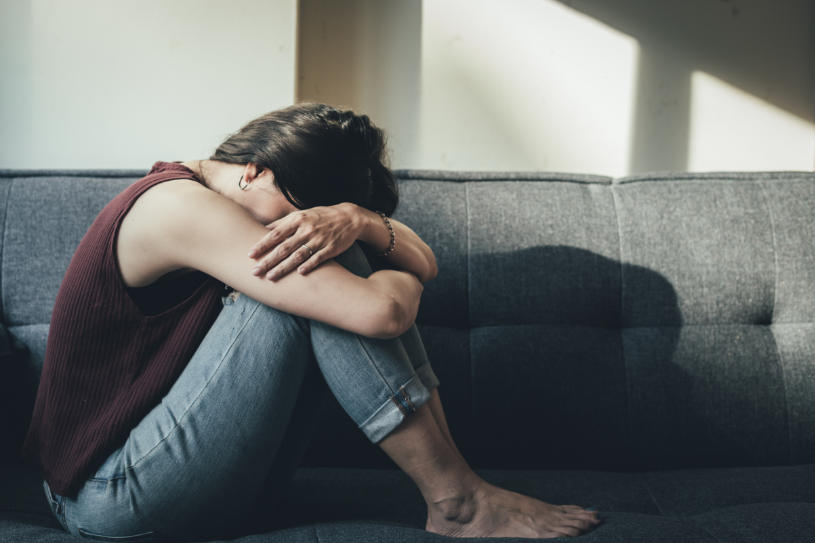
Natural Remedies Physical And Psychological Side Effects
As said, natural remedies include plant extracts like Kava, lavender, saffron, and chamomile. However, patients using these substances must not be too confident as these natural remedies also come with some side effects. Some of the physical side effects of a natural anxiety medication include:
- Weight changes
- Red eyes
- Constipation
- Diarrhea
- Headache
- Drowsiness
Based on the systematic review of scientists, these natural remedies, especially the Kava Kava, should only be used for short-term anxiety treatment as these substances can cause mild to severe liver toxicity. Moving on, natural remedies for anxiety also come with psychological side effects.
Some of the Psychological Side Effects of a Natural Anxiety Medication Include:
- Substance use disorder
- Paradoxical reactions
- Decreased cognitive performance
The side effects mentioned above can worsen especially when these plant extracts are mixed with other substances. For example, mixing Kava with alcohol can worsen the cognitive impairment effect of the substance.
Anxiety Medication Addiction Overview
Anti-anxiety meds are highly potent. They change the neurochemistry in the human brain. These drugs build up over time in the user’s body and can lead to physical and psychological tolerance, dependence, and addiction. As cited in the study of a clinical pharmacist from North Dakota, in 2010, there were 186,000 new abusers of Benzodiazepines in the United States.
Furthermore, according to European Neuropsychopharmacology, among the anti-anxiety meds mentioned above, Benzodiazepines are more prone to the development of addiction. Although they have a calming effect, they are highly addictive. This abuse and addiction potential is due to their half-life. Generally, the half-life of Benzodiazepines such as Xanax, Valium, and Klonopin, is short, and based on a study published in the Psychiatric Annals, the shorter the half-life, the greater chance for abuse and addiction.
What Are The Signs And Symptoms Of Anxiety Medications Addiction?
Some people may find it easy to spot an individual who is addicted to anti-anxiety meds especially when that person is close to the addicted individual. Moreover, these symptoms can be divided into physical and psychological. Some of these symptoms include:
- Neglected appearance and hygiene changes
- Sleep pattern changes
- Lack of energy
- Weight changes
- Redness of eyes
Psychological Signs and Symptoms of Anti Anxiety Meds Abuse:
- Difficulties handling school or work duties
- Relationship issues
- Memory problems
- Extreme paranoia
- Severe aggression
- Extreme mood swings
- Financial problems
If someone is suspected to be having some of these symptoms from the use of anti-anxiety medication, the best way to recover from it is by considering rehabilitation. There are online support group meetings that can be useful especially during this time of the pandemic.

Who Is Most At Risk Of Anti-Anxiety Meds Abuse?
Generally, those patients who misuse these anti-anxiety meds are at risk of abuse. This abuse may occur because misuse can lead to tolerance. Eventually, tolerance leads to dependence. Aside from this, based on the reports of psychiatrists from the US Veterans Affairs, many factors contribute to the increased risk of anxiety medication abuse. Some of these include:
- Patients with substance use disorder
- Individuals 18-35 years old
- Those with a family history of anxiety disorder or other psychiatric disorders
From the same source, it was reported that young adults constitute the largest portion of those who are at risk of medication for anxiety abuse. Because of these, seeking resources through rehabilitation is highly recommended.
Alternative Or Non-Pharmacological Treatment for Anxiety
Medication for anxiety may promote unwanted side effects and some patients cannot tolerate them. So, for patients who want to consider non-medical treatment or additional support to treat their anxiety disorder, the following treatment options can also be considered:
- Exercising through mindfulness– This is a powerful treatment for people struggling with this condition. Tai-chi and yoga have been shown to offer emotional, spiritual, and psychological support to individuals with mental health conditions. Meditation and mindfulness can bring about a sense of relaxation and calm.
- Cognitive-behavioral therapy– This therapy can help anxious people by teaching them to conquer fears and control worrisome thoughts. Good sleep hygiene and a healthy balanced diet are other ways to increase general well-being.
- Nutritional counseling– This treatment option involves dietary adjustments. A nutritionist will help a patient choose the best diet that can help improve the patient’s symptoms.
The best non-pharmacological treatment for anxious patients is through the use of narcotic anonymous meetings.
Safe Use of Anxiety Medication: What to Know
An anti-anxiety medication is relatively safe when taken on occasion at the prescribed dose. However, they can be dangerous when taken without a prescription or when combined with other prescription drugs or illicit substances.
Here Are Some Ways to Safely Use an Anti-anxiety Medication:
- Take under medical supervision with a doctor’s prescription
- Do not take more than the prescribed dose
- Do not take more frequently than prescribed
- Do not drink alcohol when taking benzodiazepines
- Do not mix sleeping pills and prescription painkillers
- Some antihistamines (over-the-counter allergy and cold medications) can amplify the sedating effects of benzos
- Talk to a physician before combining benzodiazepines with antidepressants or making any other mixtures of drugs
Fortunately, there is hope for patients who become addicted to these medications. In rehab centers, there are addiction treatment stages and relapse prevention plans for a safer recovery.
Frequently Asked Questions
What is the Best Anxiety Medication?
There are many good anxiety medications for patients with this disorder but the best one will only be determined by a medical doctor. Many factors, such as the health condition of a patient, will still be considered.
Is Medication for Anxiety and Depression the Same?
Antidepressants are sometimes used for anxiety. Some drugs can only be used for anxiety or depression alone while some can be used for both.
How to Get Anxiety Medication?
It is not possible to get over-the-counter anxiety medication. Only a medical doctor can provide a prescription for these drugs.
Hope Without Commitment
Find the best treatment options. Call our free and confidential helpline
Most private insurances accepted
Find Drug Rehabilitation Centers Near You Anywhere In the US
Addiction Resource team has compiled an extensive list of the top drug rehabilitation facilities around the country. Use our locator tool to find the best centers near you.
Page Sources
- Albert, P. R., Vahid-Ansari, F., & Luckhart, C. (2014). Serotonin-prefrontal cortical circuitry in anxiety and depression phenotypes: pivotal role of pre-and post-synaptic 5-HT1A receptor expression. Frontiers in behavioral neuroscience, 8, 199.
- Bandelow, B., Michaelis, S., & Wedekind, D. (2017). Treatment of anxiety disorders. Dialogues in clinical neuroscience, 19(2), 93.
- Cartwright, C., Gibson, K., Read, J., Cowan, O., & Dehar, T. (2016). Long-term antidepressant use: patient perspectives of benefits and adverse effects. Patient preference and adherence, 10, 1401.
- Cipriani, A., Furukawa, T. A., Salanti, G., Geddes, J. R., Higgins, J. P., Churchill, R., ... & Barbui, C. (2009). Comparative efficacy and acceptability of 12 new-generation antidepressants: a multiple-treatments meta-analysis. The lancet, 373(9665), 746-758.
- Fu, P. P., Xia, Q., Guo, L., Yu, H., & Chan, P. C. (2008). Toxicity of kava kava. Journal of Environmental Science and Health Part C, 26(1), 89-112.
- Kasper, S., Anghelescu, I., & Dienel, A. (2015). Efficacy of orally administered Silexan in patients with anxiety-related restlessness and disturbed sleep–A randomized, placebo-controlled trial. European neuropsychopharmacology, 25(11), 1960-1967.
- Kessler, R. C., Chiu, W. T., Demler, O., & Walters, E. E. (2005). Prevalence, severity, and comorbidity of 12-month DSM-IV disorders in the National Comorbidity Survey Replication. Archives of general psychiatry, 62(6), 617-627.
- Maust, D. T., Lin, L. A., & Blow, F. C. (2019). Benzodiazepine use and misuse among adults in the United States. Psychiatric services, 70(2), 97-106.
- Munir, S., Gondal, Z., & Takov, V. (2017). Generalized anxiety disorder (GAD).
- Papakostas, G. I. (2008). Tolerability of modern antidepressants. J Clin Psychiatry, 69(Suppl E1), 8-13.
- Read, J., & Williams, J. (2018). Adverse effects of antidepressants reported by a large international cohort: emotional blunting, suicidality, and withdrawal effects. Current drug safety, 13(3), 176-186.
- Santarsieri, D., & Schwartz, T. L. (2015). Antidepressant efficacy and side-effect burden: a quick guide for clinicians. Drugs in context, 4.
- Schmitz, A. (2016). Benzodiazepine use, misuse, and abuse: a review. Mental Health Clinician, 6(3), 120-126.
- Schweizer, E., Rickels, K., Case, W. G., & Greenblatt, D. J. (1990). Long-term therapeutic use of benzodiazepines: II. Effects of gradual taper. Archives of General Psychiatry, 47(10), 908-915.
- Smith, K., & Leiras, C. (2018). The effectiveness and safety of Kava Kava for treating anxiety symptoms: A systematic review and analysis of randomized clinical trials. Complementary therapies in clinical practice, 33, 107-117.


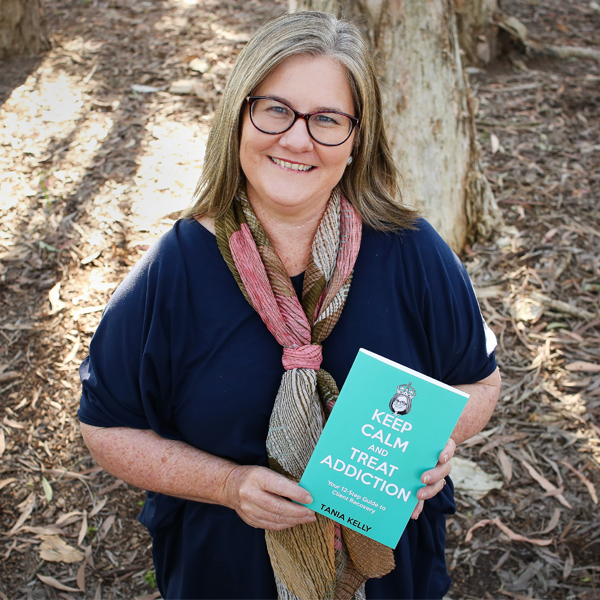 Reviewed by:
Reviewed by: 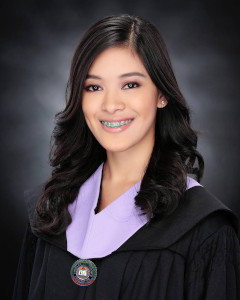 Written by:
Written by: 


 FindTreatment.gov
FindTreatment.gov